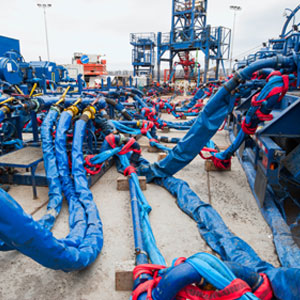
|
|
Hydraulic fracturing involves a lot of water, and the states are leading the way in trying to balance the needs and concerns of energy companies, drillers, conservationists and the public. Source: iStock |
Law shapes much of what we do. For writers, law affects what we can publish. We can’t, for example, libel people by printing accusations not supported by facts.
Laws and government regulations also govern drilling, whether drillers go after water, turn to the right in search of oil or gas, or run horizontally installing fiber optic lines. Freelancer Rachel Beavins Tracy interviewed Professor Joseph Dellapenna of the Villanova University School of Law for this month’s issue (page 10). Her discussion with Dellapenna explores the intersection of groundwater and law, and examines issues from property rights to hydraulic fracturing. They also discussed trends in the laws that drilling contractors and those who pay for their services must follow. Dellapenna is a recognized authority on the subject of groundwater law, so I recommend readers check out the interview.
I want to focus on one thing he says, in regards to fracking, since that’s a topic everyone seems to have an opinion on (valid, educated or not).
“I really can’t say there’s any area that’s solved the problem,” he says, when asked if one state or region gets the balance right between stakeholders. Those stakeholders, of course, include drillers, drilling companies, people who oppose directional drilling, conservationists and a list of others.
“The tendency is to lean in one direction—those are your fracking bans—or in the other direction, like the state of Pennsylvania, trying to ban fracking bans. … There’s not a lot of talk around here about trying to balance interests. And there should be.”
What is the right balance? I want to hear from readers. “Even though a lot of drillers say fracking is perfectly safe,” Dellapenna continues, “there are a lot of people who don’t agree with that.” The industry can’t just dismiss critics as quacks, even though some celebrity protesters make it tempting.
In the absence of a comprehensive federal policy on the practice, rules are bubbling up from the cauldrons of democracy—the states. Wyoming passed tough new water quality standards in response. New York is still debating whether to allow fracking. Pennsylvania wants to ban fracking bans. A bill proposed in Maryland would ban fracking, but it found little support in the legislature. These same scripts are playing out across the United States.
Dellapenna follows these issues closely. I try to follow them, too. But I’m not in all 50 states and neither is he. So I’m asking readers for their input. What ideas do you see in your state that “balance interests”? Has your state passed laws on fracking that make all stakeholders happy (or, at least, equally unhappy)?
Most drillers I’ve spoken with, as Dellapenna points out, believe fracking does not affect groundwater. They believe the practice is safe on the front end, while developing wells, and on the back end, when disposing of the water in properly constructed injection wells. They’re likely right. But protests and criticism will continue until a policy emerges that balances all interests.
The New York Times quotes Wyoming Gov. Matthew Mead as saying: “I am not going to accept the question of do you want a clean environment or do you want energy. The fact is that in Wyoming, we want and need both.”
Those are wise words that speak to the idea of balancing interests. Maybe Wyoming is finding the right balance. Maybe not. Maybe there’s a better way in Michigan or California or Tennessee. Talk to me. Tell me, what’s going on in your state? How is your state finding the right balance? Email verduscoj@bnpmedia.com.
If your state has the right idea, it’ll catch on in others. Then, maybe the feds will catch up.
Stay safe out there, drillers.
Correction
Portions of a story on page 10 of February’s issue (“Water Access Key to Growth of U.S. Gas Industry”) confused two products offered by Hose Solutions: the company’s lay flat hose and its flexible drop pipe. See www.thedriller.com for the corrected version. National Driller regrets the error.




Report Abusive Comment